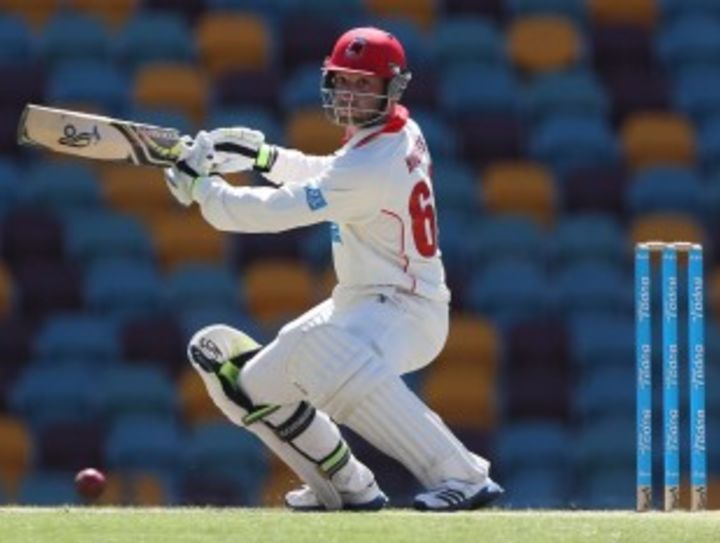Hughes, Khawaja should learn from Ponting - Inverarity
Phillip Hughes and Usman Khawaja must seek to emulate Ricky Ponting's energy in the field and his running between the wickets in order to improve, says Australia's chief selector

Phil Hughes and Usman Khawaja must seek to emulate the energy and drive of the seemingly ageless Ricky Ponting before they can be considered ready for a return to Australia's Test team, national selector John Inverarity has said.
Watching Ponting race around the field for Tasmania at Adelaide Oval last week, Inverarity's fellow selector Rod Marsh remarked on the 37-year-old's buzzing countenance, undimmed by a career that has lasted 20 years. It is an example Inverarity said Hughes and Khawaja had to follow on their path back to international cricket. Neither are considered strong fielders.
"Rod Marsh and I were watching in Adelaide and Rod said 'just look at him', of course he was pointing to Ricky Ponting," Inverarity said. "He was running around and throwing left hand and right hand. Khawaja and Hughes need to learn that."
Since being dropped from the national team following last year's Hobart Test defeat to New Zealand, Hughes and Khawaja have spent the northern summer in England undertaking county stints of varying productivity. They have also each moved states in search of better returns as batsmen, Hughes to South Australia, Khawaja to Queensland.
However Inverarity indicated that it was not merely runs the selection panel were seeking from the two left-hand batsmen. Apart from fielding, the issue of running between the wickets is another. Inverarity contrasted Khawaja's approach to that of Ponting and Michael Hussey, who seek runs for their batting partners as aggressively as they crash loose balls to the boundary.
"What we'll have to see from Usman is dynamism in the field and his running between the wickets, demonstrating that energy and vitality," Inverarity said. "You take Michael Hussey and Ricky Ponting, when they're at the non-striker's end they present themselves every ball to the batsman. They're there and they're down the wicket and their level of alertness [is high].
"I think Usman needs to learn that. If you're batting, you can be enhanced by the presence of the player at the other end, it's a team. A lot of players would all say batting with Hussey and Ponting, they would enhance their batting, they're just terrific. Usman's got to give in that sense too. He's a beautiful timer of the ball, but there's body language and presence as well."
Hughes has offered signs of developing his game so far this season, impressing Inverarity by unfurling a range of strokes through the leg side during a brief domestic limited-overs innings against the Tigers. Inverarity said the panel wanted to take a patient approach with Hughes, waiting until he had shown he was entirely ready and settled rather than throwing him into the Test side without runs behind him, as happened during the 2010-11 Ashes summer.
"My personal view was that we wouldn't rush him back until he was in a good groove and playing well," Inverarity said. "He played very well in Brisbane, and when South Australia played Tasmania in the one-dayer there was a period of about 20 minutes where he hit two spanking straight drives slightly to the offside, then he pulled two balls.
"He wasn't doing that before, but they were two terrific shots, and one off his toes for three or four. They were different areas to where he was scoring before. There are signs there that he's moving to the next level, and we'd like to see that consolidated. We're counting on him coming through. He has a lot of centuries for a 23-year-old.
"If he's almost ready and he's still getting his game sorted, to bring him back to me is the wrong decision. His platform needs to be solid and he knows where he's at. That's in his long-term interests and Australia's."
Pat Howard, Cricket Australia's team performance manager, said one of many studies conducted by his department was an analysis of how players responded to being dropped from the national team early in their careers. "We've gone and done a study of the last 50 or so years, and the reality is pretty much everybody's got dropped. And it's part of their journey," he said. "There's been a couple of blokes who've been in, seen what it's like, stretched a little bit, come back. Nobody's written off."
Daniel Brettig is an assistant editor at ESPNcricinfo. He tweets here
Read in App
Elevate your reading experience on ESPNcricinfo App.